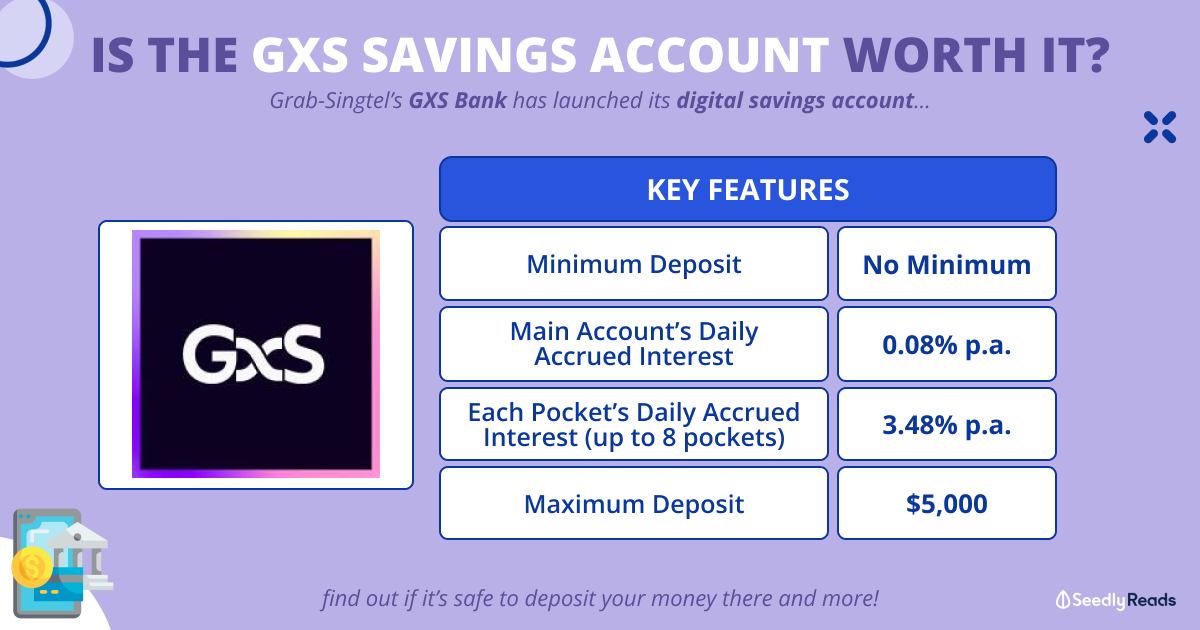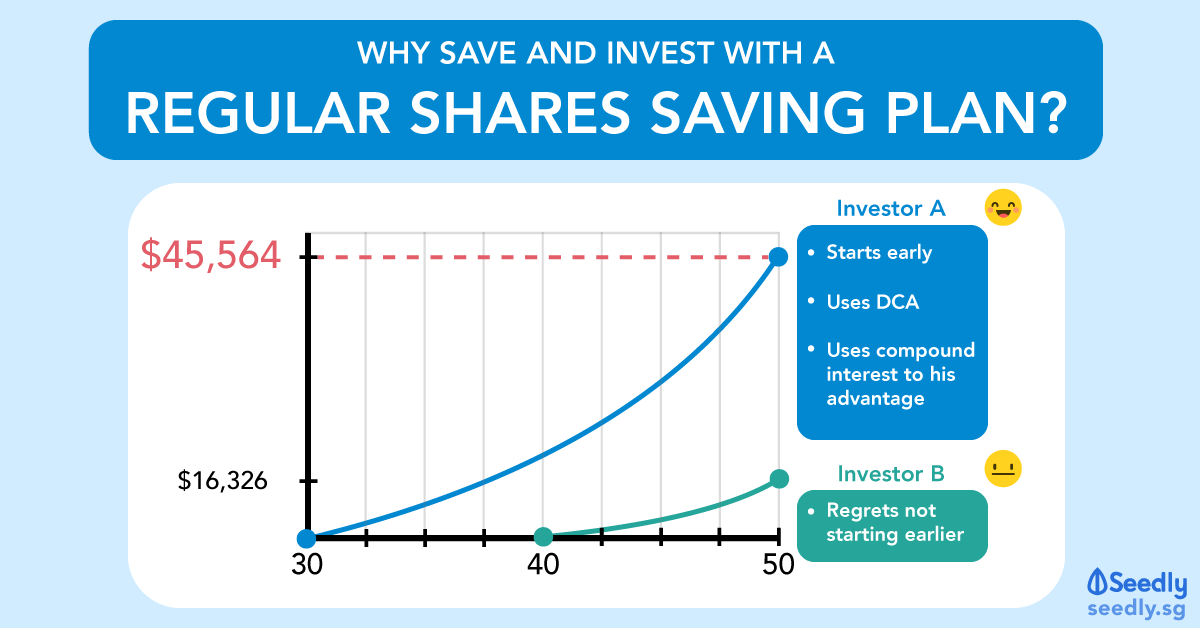Advertisement
Anonymous
What should I do with my bank savings?
Hi, I have 60k in my savings at the age of 24 this year. I am thinking of ways to let my money work on its own. Of course, 60k is a small sum but I’m sure there’s a better place to put in somewhere to have at least some good returns.. are there any recommendations? Thanks in advance!
17
Discussion (17)
Learn how to style your text
Shania Loh
10 Aug 2020
Seedly Student Ambassador 2020/21 at Seedly
Reply
Save
Ow Jie Liang
09 Aug 2020
Student Ambassador 2020/21 at Seedly
Wow thats nice! First off, congrats on being closer to the first 100k. As laymen, I believe that the best things to do would be to diversify and place your money in different sources to minimise risk.
You can explore robo advisors, ETFs, high interest savings account, individual stock picking and even cryptocurrency.
Reply
Save
Baby Steps Finance
06 Aug 2020
Seedly Student Ambassador 2020 at Seedly
Pick a good stock (preferbly a blue chip) and whack everything
Reply
Save
Sharon
06 Aug 2020
Life Alchemist at School of Hard Knocks
What would you consider "some good returns"?
I created this for illustration. In my case, I lump anything "more than 4% p.a. and to the sky" (the sky's the limit) as moderate - high risk (which I consider from moderate risk as "some good returns"), and investments that I'll consider are stocks, ETFs & funds.

Meanwhile, to someone who have an even higher risk appetite, this pyramid may look different - they could separate moderate from high risk, where high risk is options/futures. Maybe this is their "some good returns".
As you're young, you can take opportunity to invest in the moderate-high risk category, so that your money can compound more over long term.
However, you do want to have some in the low risk category, because sometimes, things happen unexpectedly....you may have emergency funds set aside, but the actual may exceed your expectations. You may have no choice and to draw on this.
Usually your capital is guaranteed, so that it's like a base and you can still access to some cash.
Generally, you won't want to touch assets in the moderate - high category for as long as possible, so as to let compounding works its magic over time. It will be a bad idea to draw this down (worst if it's at a loss) in times of need.
Some folks may use The rule of 110, where 110 minus your age to determine how much you should put in stocks and bonds. Hence, your situation would be 86% in stocks and 14% in bonds.
Whether you want to follow this guideline, depends on your risk appetite and life situation.
Hope this gives some food for thought.
Reply
Save
Put 10K inside Singlife to yield 2.5% p.a
The rest of the money can put inside standard Chartered j...
Read 11 other comments with a Seedly account
You will also enjoy exclusive benefits and get access to members only features.
Sign up or login with an email here
Write your thoughts
Related Articles
Related Posts
Related Products

Standard Chartered JumpStart Account
4.8
785 Reviews
Maximum Interest: 2.50% p.a. for balances up to S$50,000
INTEREST RATES
$0
MIN. INITIAL DEPOSIT
$0
MIN. AVG DAILY BALANCE

DBS/POSB Multiplier Account
4.3
329 Reviews

OCBC FRANK Account
4.7
213 Reviews
Related Posts
Advertisement








Hi Anon! Good job on accumulating $60k at age 24! I'd suggest putting your money into a spending account and savings account, and you may consider investing on the side.
Spending account: This can be your POSB or OCBC account that tracks your daily expenses and lifestyle needs.
Savings account: Considering putting your emergency funds (At least 6 months worth of expenses/income here) into Standard Chartered Jumpstart account. You can earn 1% p.a on the first $20k. Their rates are still better than the other banks out there.
Investments: Try robo-advisors! StashAway, AutoWealth, Syfe, Kristal.AI etc. Depending on your risk appetite and time horizon, you can reap favourable returns in the short and long run.
Other alternatives: StashAway Simple is a cash management account that earns you 1.9% p.a (not guaranteed) and Singlife, an insurance savings account that earns you up to 2.5% p.a (not guaranteed). You may also consult a financial advisor and consider any savings/investment plans to help you accumulate your wealth over the years.